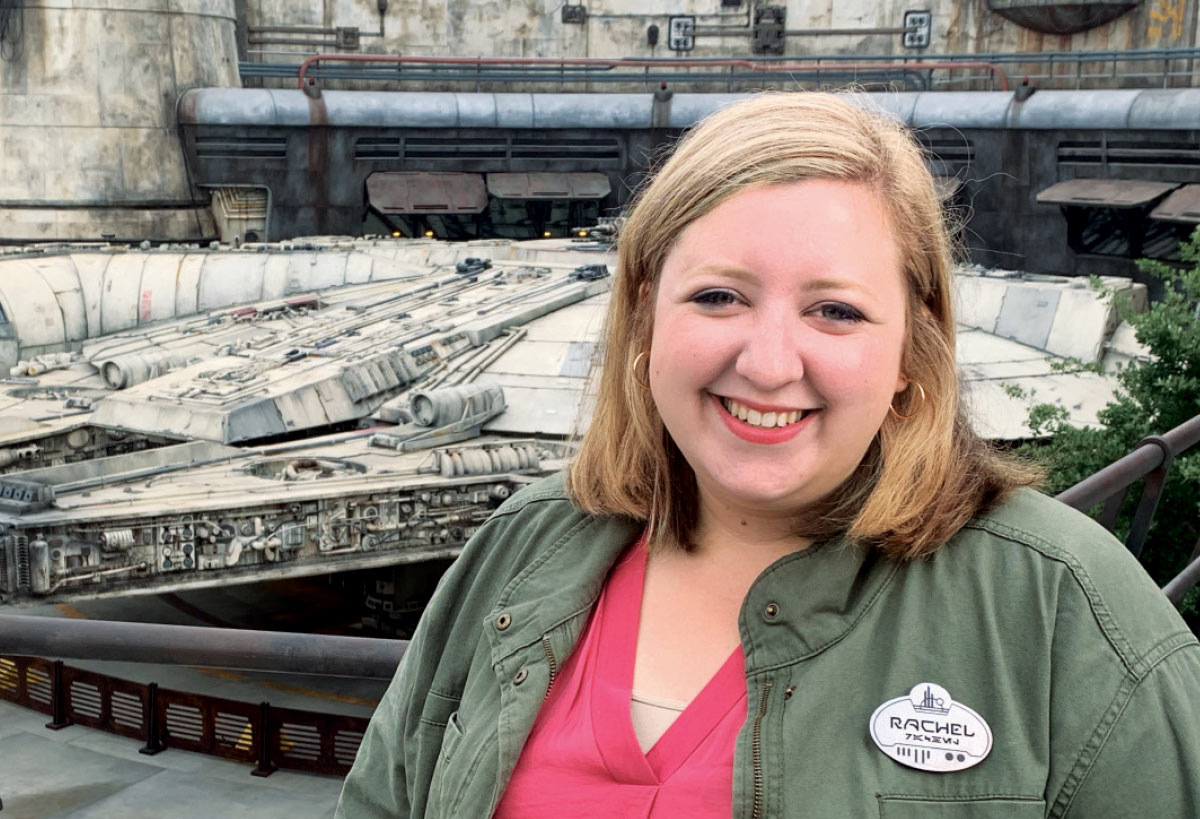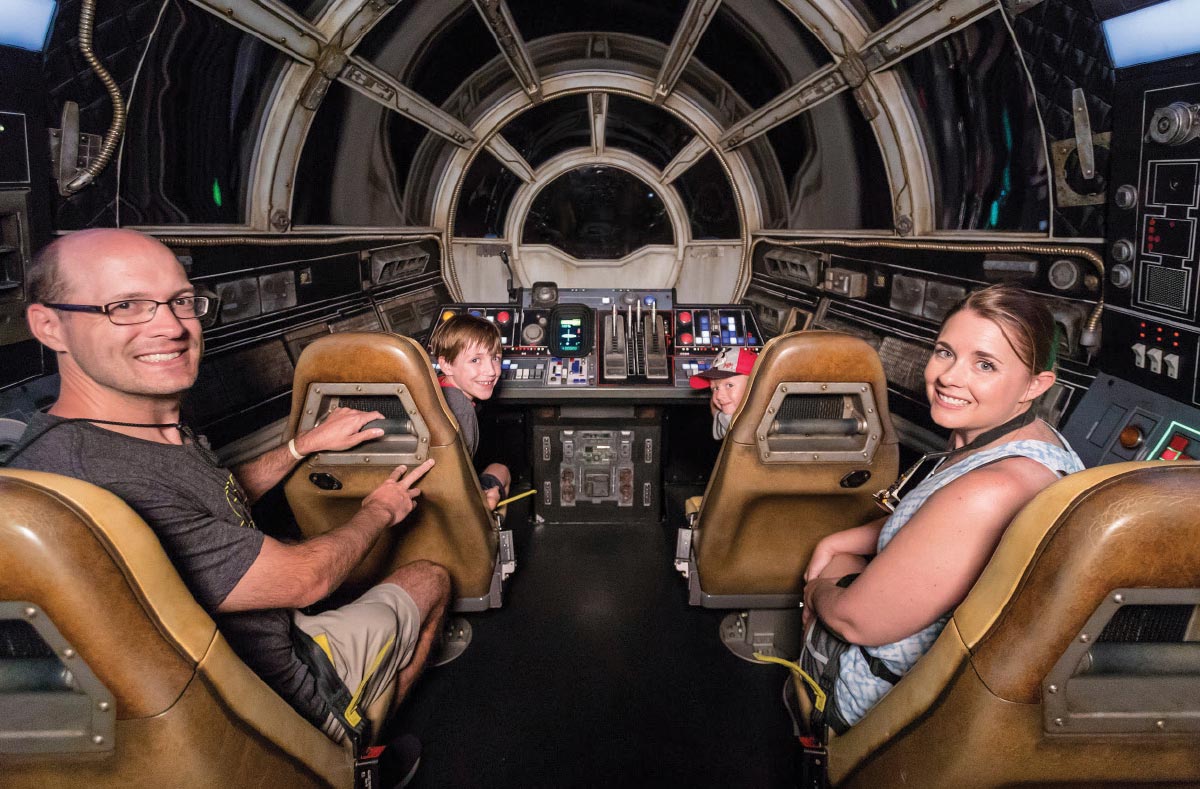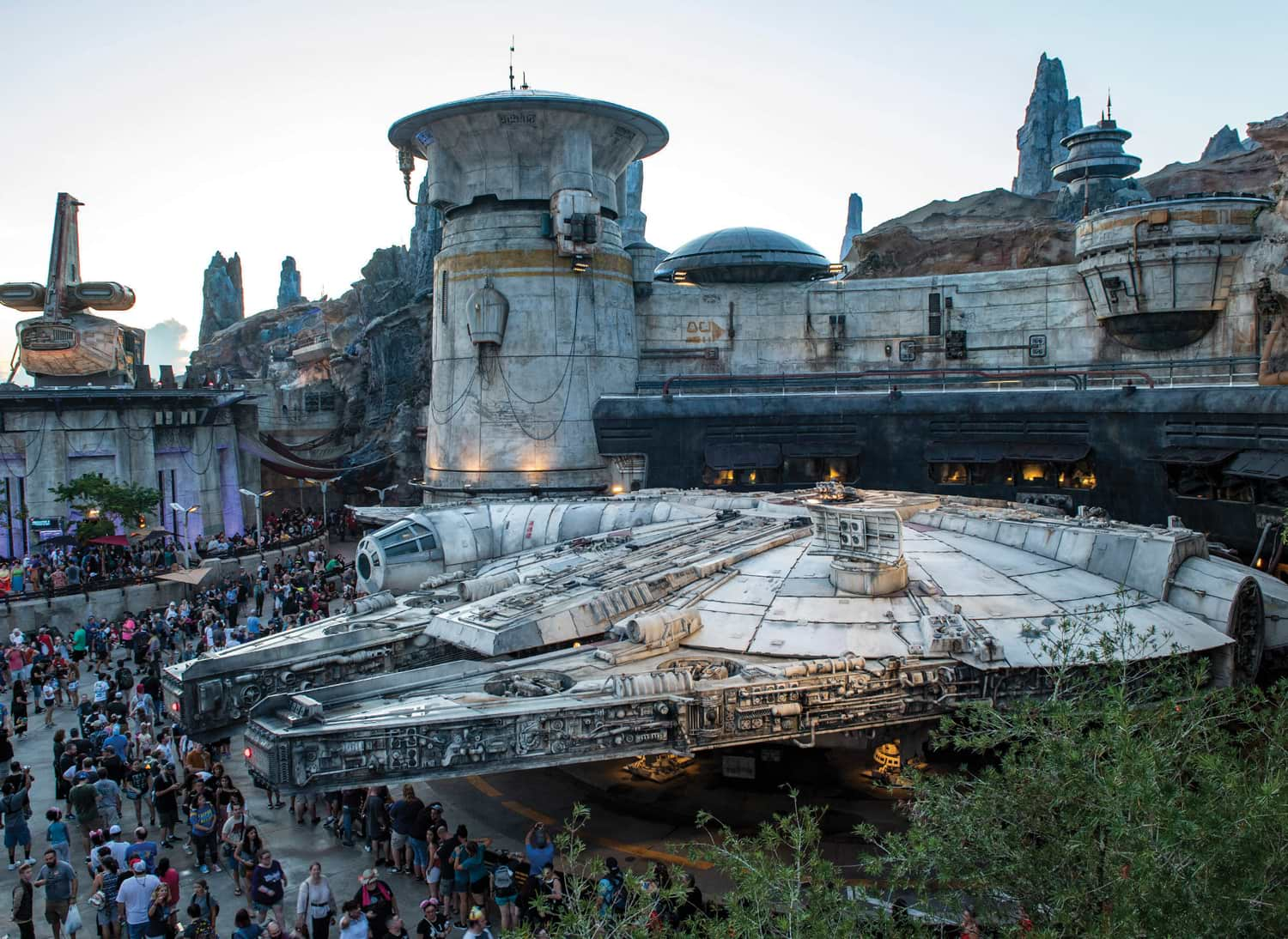nstead of “good morning,” a villager greets you by saying, “bright suns.” The nearest bathroom? That query gets you a blank stare, but you’re told the closest “refresher” is just past the Toydarian Toymaker shop. And — wait a parsec — is that person drinking blue milk?
Clearly, you stepped out of the traditional theme-park experience and into a galaxy far, far away.
At Star Wars: Galaxy’s Edge, the new themed land at Disneyland Resort and Walt Disney World Resort, every element, from the life-size Millennium Falcon to the droid tread tracks in the ground, is crafted with a Jedi Master’s attention to detail.



Among the hundreds of creative humans behind that next-level immersion: a Walt Disney Imagineer who sharpened her design and leadership skills at Bucknell.
“Fans will get to experience Star Wars through all five senses,” says Rachel Sherbill ’09. “It’s like being in a 360-degree movie that you can also smell, taste and touch.”
As a producer for Galaxy’s Edge, Sherbill parlayed her double major in theatre and economics into every Star Wars fan’s dream job.
“Many of the theatre classes that I took, like scenic design, gave me practical, foundational skills that I use every day at work,” she says. “An economics background has also given me a great footing when working at a Fortune 500 company.”
But nothing about Batuu feels new. In fact, even though Galaxy’s Edge opened in 2019, it feels lived in, as if its grimy walls could tell stories of bounty hunters and Resistance fighters.
Making a new land feel authentically ancient, even historic, takes significant research, Sherbill says.
“Our team visited real-world locations like Marrakesh to help understand how history reveals itself in architecture through erosion and visual wear and tear,” Sherbill says.
One assignment took Sherbill to Skywalker Ranch, the George Lucas-owned production facility north of San Francisco. There, she took foot rubbings of the actual R2-D2 unit used in Star Wars: Episode IV to make sure the droid treads in Galaxy’s Edge matched exactly.
“I still chuckle to myself when I see them today,” Sherbill says.
Will the average guest know about the effort behind that specific detail? Perhaps not. But early reviews indicate that all those little details have added up to something effective.
Consider the immersive experience of hiking into the woods and allowing nature to envelop you — that’s the feeling Sherbill aimed to deconstruct and recreate when designing Galaxy’s Edge.
“These experiences have shaped the way I think about design — things like the smell of the air, the textures of trees, the color palettes of the rocks,” she says.
That passion for seeing the world in new ways led Sherbill to Bucknell, where her parents encouraged her to try a few “out-of-the-box” classes.


“One hour I would be in a class on scenography looking at Bauhaus designs, and the next I would be in a course on African economic development,” Sherbill says. “Getting to pursue both theatre and economics really allowed me to stretch as a student.”
As a senior, Sherbill conceived and produced Schoolhouse Rock Live. Sherbill wanted children to experience live theatre, so she arranged for the cast to perform the musical at local elementary schools.
She was involved in everything — getting approval, applying for grant funding, scheduling auditions, holding rehearsals, building the sets, designing the costumes and coordinating with elementary schools.
Professor Elaine Williams, theatre & dance, remembers Sherbill as “extremely organized, fun and optimistic.”
“She promoted the tour to local schools and received more requests for performances than we could honor,” Williams says.
Today, Sherbill’s production budget is considerably larger than the budget from Schoolhouse Rock Live. But the underlying goal is still the same: designing memories that last.
“So many of the things we build at Walt Disney Imagineering end up being in our parks for 20-plus years and then they become cultural icons,” she says. “What a privilege it is to be part of something that brings so much magic and joy into people’s lives.”